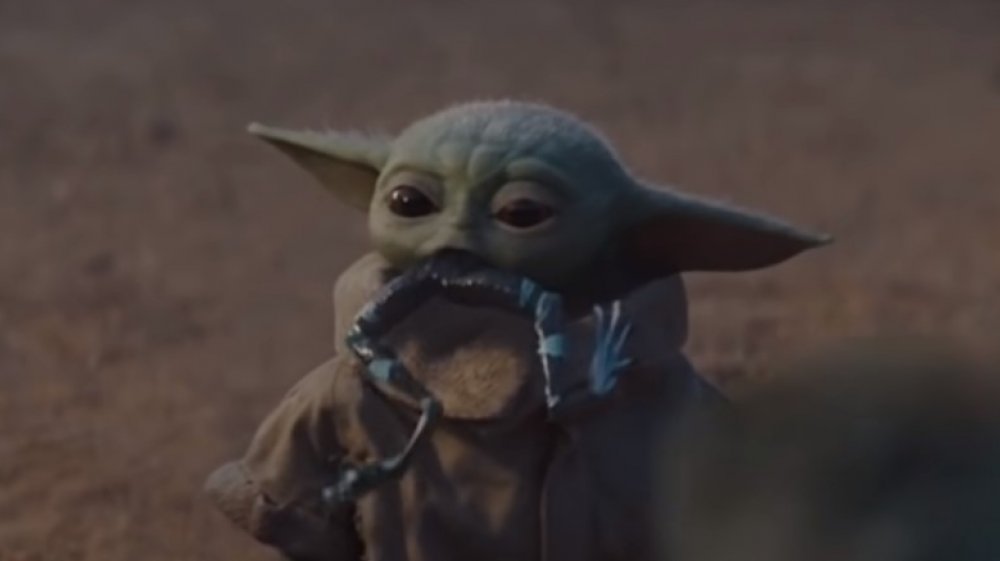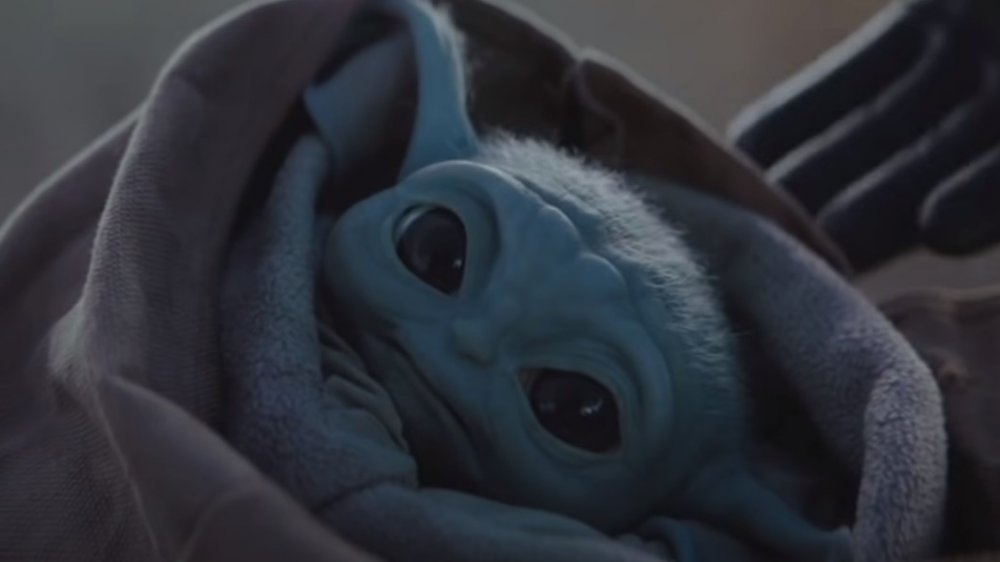The Real Reason Baby Yoda Is So Cute, According To Science
On November 12th, 2019, myriad viewers from around the world looked to their television sets and, irrespective of their places on the gender identity gradient, felt sudden and intense maternal impulses. Strollers and cartons of instant formula flew from the shelves, purchased in a state of semi-hypnosis. Instagram photos of infants were favorited with greater than usual aplomb. Millennials, historically disinclined to reproduce with the vigor of generations past, dusted off family photo albums and collectively breathed a wistful sigh at the sight of chubby little legs and raspberry-worthy wee tummies. For the first time since Groot the Younger, Disney had reminded the world that babies are cute as a button.
Yes, Baby Yoda, AKA "The Child" – real name: Kieth Howard Yoda, but good luck getting John Favreau to admit it — had arrived, hauling in his hovercrib's wake a trail of "oohs" and "awws" and more memes than you could shake a condescending Gene Wilder at. We were powerless against the little fella, and we needed to find out why before someone used that power as a force for evil.
Luckily, in times of uncertainty, we can always rely on Rolling Stone, which spent some time picking the brain of evolutionary psychologist Doctor Daniel J. Kruger. The good doctor explains that cooing at Baby Yoda might just be hardwired into our collective psyche, and not just because everyone loves a toddler that can crush a space-rhino with its brain.
Baby Yoda? More like "squee-wok."
According to Kruger, there are a couple of things afoot.
First off, there's the Kindchenschema of it all — a word pioneered by Austrian researcher Konrad Lorenz meaning "the stuff that makes stuff cute." In Studies in Animal and Human Behavior, vol. II, Lorenz points out that "humans feel affection for animals with juvenile features: large eyes, bulging craniums, retreating chins," or roughly a point-for-point description of Baby Yoda. In theory, this is thanks to some biological pre-programming. Since infants exhibit these features, we're evolutionarily drawn towards loving other things that do as well. That's why nine out of ten adults list their deepest unfulfilled desire as "getting a hug from an Aye-Aye lemur."
Kruger goes on to state that fictional characters have been sliding in the direction of focus-tested infantilization for decades, singling out My Little Pony in particular. In the 1980s, the equine friendship advocates rocked the Howard Moon "big body/little eyes" creepy combo, while their newer and more fanatically followed iterations have gone full-tilt towards babyish adorability.
But that's not all. Kruger states that Baby Yoda's appeal may stem from another factor as well — namely, our deep admiration for his forebears. "Yoda is one of the most beloved characters in the Star Wars universe. I think he's universally admired," Kruger states. If Disney ever gets their hands on the rights to Baby Ruth Bader Ginsburg, it's all over.

